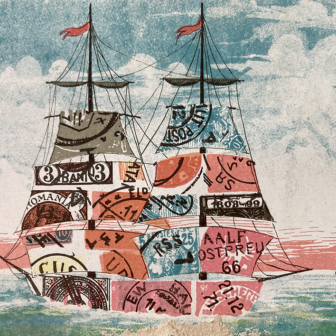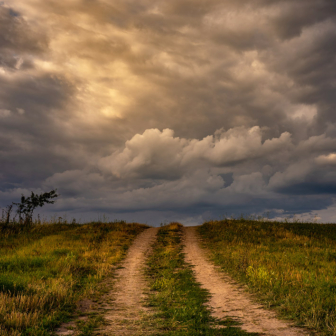As we enter the election campaign proper, Labor and the Coalition are promising to make our lives much better. Inflation will go down and wages up, despite Trump’s tariff wrecking ball crashing through global trade. An ageing population will get quality care without anyone having to pay higher taxes. The cost of housing will fall yet the fundamentals of the real estate market will be untouched. The existential threat of climate change will be managed without restricting gas and coal projects.
Philosopher Mara van der Lugt calls this “hope washing” — a strategy for disguising inaction while making voters feel positive about the future. Hope sells in politics but she cautions us to be wary.
I doubt Australians need her advice. Most of us already take politicians’ pledges with a hefty dose of salt. But van der Lugt is pointing to a larger problem — the pervasive peddling of “bad hope” and the dangers that entails.
We’re often encouraged to maintain a positive outlook about the future, despite environmental destruction, yawning inequality, democratic breakdown, rising military spending and spreading wars. This look-on-the-bright-side ethos is exemplified in a quote attributed (probably apocryphally) to Winston Churchill: “A pessimist sees difficulty in every opportunity; an optimist sees opportunity in every difficulty.”
To keep our spirits up and avoid succumbing to despair, communications professionals advise us to end articles on climate change on a hopeful note. They want readers to be reassured that it’s possible to prevent a catastrophe, even though a decade of deadly heat shows this is clearly false.
In place of such boosterism, van der Lugt recommends hopeful pessimism, and she insists this is not a contradiction in terms. It is wrong, she asserts, to associate optimism with hope and pessimism with despair. Optimism may be the expectation that something good will happen and pessimism the expectation of something bad, but the pessimist doesn’t desire the bad outcome. On the contrary, the pessimist hopes that it won’t come about. Pessimism is very different from fatalism. It’s not “a positive belief in decline” but “a refusal to believe that progress is a given.”
Van der Lugt’s book, Hopeful Pessimism, is a philosophical response to the climate challenge and presents Greta Thunberg as an exemplar. The young Swedish activist doesn’t mobilise millions of people “by offering hope or inspiration but by serving up the stark and scary facts undiluted.” It’s not hope Thunberg urges, but panic.
The comms specialists may worry that such “alarmist” narratives lead to apathy and defeatism, but van der Lugt believes this fear is misplaced. For one thing, Thunberg’s narrative is better described as “accurate” than “alarmist.” And, more central to the thesis of hopeful pessimism, being gloomy about the future doesn’t equate to throwing in the towel. “From the pessimistic premise the defeatist conclusion does not follow.”
Ungrounded optimism is far riskier than reasoned pessimism, argues van der Lugt, because it burdens us with the responsibility of maintaining unrealistic dreams. Climate optimism may be an effective way to rally superficial engagement, but it raises expectations that can’t be fulfilled and leaves the climate movement “ill-equipped to deal with disappointment and failure.” Misplaced optimism is a recipe for burnout, she says, endorsing the view of novelist China Miéville that “activism without pessimism is just sentimentality.”
Given the future we already face, and regardless of how much or little we achieve from here, optimism is too fragile to hold. Phenomena like eco-anxiety and climate grief are not pathologies, but normal reactions to real loss, and activism is arguably the best psychological antidote. The real pathology, in face of the evidence, is to assume that everything will turn out okay.
Still, why act when countervailing powers like the fossil fuel lobby are so strong, and the prospects of success so weak? Isn’t this wasted effort? Why not withdraw from the contest and visit the Great Barrier Reef while we still can?
Hopeful pessimism offers two responses. The first is that even if we miss current global emissions targets, as we certainly will, any amelioration in climate pollution reduces future death and suffering. As Thunberg says, “every fraction of a degree and every tonne of carbon dioxide will always matter.”
The metaphor of a comet wiping out life on earth is stubbornly persistent, but incredibly unhelpful, says van der Lugt, because climate change “is not the kind of catastrophe that is immediate or total.” The slogan of climate activism should not be “now or never” but “now and forever.”
This utilitarian approach, of acting to reduce future suffering, is but a second-string in her argument. The deeper foundation of hopeful pessimism is the human search for meaning in an absurd world and the moral responsibility it gives rise to.
Here we introduce another enlistee in van der Lugt’s cause, French philosopher and novelist Albert Camus, whose notion of absurdity arises from the world’s “unreasonable silence” in response to the human need for clarity and purpose. In Greek legend, Sisyphus is condemned by Zeus to forever push a huge boulder to the top of a mountain, only to see it roll down again just as he reaches the top. In The Myth of Sisyphus Camus asks us to imagine the mythical king not as resigned and defeated but as scornful and rebellious, and perhaps even joyful at times. “One must imagine Sisyphus happy,” he wrote.
For Camus, the best defences against absurdity are participation and action, combined with the virtues of courage and intelligence. Or to put it in Thunberg’s terms, action creates hope.
In The Plague, Camus’s hopefully pessimistic Dr Rieux helps the sick because it is his duty, even though there is little hope of saving lives. The plague means endless defeat, but he won’t give up. His friend Tarrou, meanwhile, is driven by solidarity. He believes the plague requires everyone to take a side. Failing to act is siding with the pestilence.
Van der Lugt is not suggesting that outcomes are of no significance, or that meaning and purpose will be found in struggle alone, but she advocates “a view of hope not vested primarily on worldly consequences.”
History is replete with examples of resistance against hopeless odds. She cites the Jewish uprising in the Warsaw Ghetto, the resistance in occupied France, and the American civil rights campaign — movements not motivated primarily by expectations of success, but by principles of dignity and freedom.
Long before climate change emerged as an issue Camus warned against the dangers of inertia and adaptation and advocated “a fierce philosophy of action that is as bold as it is stark, stripped from any confidence of victory.” We act out of solidarity and justice, even though our all our achievements may only be transitory.
The Czech writer, dissident and eventual president Václav Havel must have felt he was up against insurmountable odds in challenging communist rule in Eastern Europe. But Havel distinguished between two types of hope — the first oriented towards achieving outcomes in the world, the second a state of mind rooted in “the certainty that something makes sense, regardless of how it turns out.” Van der Lugt labels these two kinds of hope “green hope” and “blue hope,” a reference to the two versions of G.F. Watts’s nineteenth-century painting Hope. (The blue version adorns her cover and appears above.)
In his first speech as British prime minister, Boris Johnson pushed the politics of hope hard, presenting himself as the optimistic leader needed to counter “the doubters, the doomsters, the gloomsters” who were claiming Brexit was destined to be a disaster. They would be proved wrong he insisted. Six years on, the opposite is true. Australian doubters, doomsters and gloomsters could also argue that they were right to doubt the resolve of a newly elected Anthony Albanese to urgently tackle the climate challenge.
As the American activist philosopher Cornel West cautioned in relation to the Obama presidency: “Real hope is grounded in a particularly messy struggle, and it can be betrayed by naive projections of a better future that ignores the necessity of doing the real work.” •
Hopeful Pessimism
By Mara van der Lugt | Princeton University Press | US$24.95 | 280 pages




